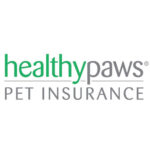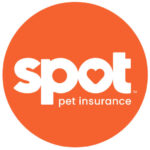Best Pet Insurance For Cavalier King Charles Spaniels In 2025
I find Healthy Paws to be the best option for personalized pet insurance for Cavalier King Charles Spaniels.
We’ve saved shoppers an average of $350 per year on their pet insurance.
It’s concerning that 80% of pet owners aren’t financially prepared for a surprise $500 vet bill. This is where pet insurance provides a much-needed safety net.
In this review, we’ll take a closer look at the best pet insurance providers for Cavalier King Charles Spaniels, helping you choose a policy that fits your needs. Pet insurance, like health coverage, opens up better treatment options and reduces financial strain.
Best Pet Insurance Companies For Cavalier King Charles Spaniels, 2025
Many insurance providers focused on Cavalier King Charles Spaniels aim to ensure your pet's health and provide financial assistance, though they differ in their offerings. What benefits one pet may not suit another. Here's a look at the leading pet insurance companies for Cavalier King Charles Spaniels:



Compare The Best Pet Insurance Companies For Cavalier King Charles Spaniels
From our review of the best pet insurance choices for Cavalier King Charles Spaniels discussed earlier, it's clear that several reputable companies are competing for the top spots. Each company also possesses its own unique benefits. Here's a brief summary to give you a peek into each insurer.
| Overall Rating | Best For | Waiting Period | Reimbursement % | Benefit Limit | Get A Quote | |
|---|---|---|---|---|---|---|
| Healthy Paws |
|
Overall |
15 days accident/illness |
70%, 80%, 90% |
Unlimited annual and lifetime |
Instant Quote |
| Lemonade |
|
Cheap |
2 days accident, 14 days illness |
70%, 80%,90% |
$5,000 to $100,000 annually |
Instant Quote |
| Many Pets |
|
Puppies |
15 days accident/illness |
70% or 80% (Most States) |
Unlimited annual and lifetime |
Instant Quote |
| Pumpkin |
|
Older Dogs |
14 days accident/illness |
90% |
$10,000 , $20,000 or unlimited |
Instant Quote |
| Spot |
|
Multiple Pets |
14 days accident/illness |
70%, 80%, 90% |
$2,500 to unlimited |
Instant Quote |
Our Methodology
Ratings were formulated by reviewing insurer websites, analyzing customer feedback, consulting other review platforms, and drawing on personal experiences with pet insurance.
Quotes Analyzed
Years Of Industry Experience
Brands Reviewed
Research Hours
Detailed Reviews Of The Best Cavalier King Charles Spaniel Insurance Companies
Best Overall
Key Statistics
Why We Like Them
⇅Healthy Paws is the best pet insurance option because it has no cap on claim payouts, no per-incident limits, and no restrictions. While it may cost more upfront, its value is in removing tough decisions based on policy limitations. The policy is simple with no pricey extras, and you can visit any licensed vet. Claims are easy to submit via their mobile app or website, with most handled within two days.
Benefits & Drawbacks
⇅- Boundless annual and lifelong reimbursements.
- Swift handling of the majority of claims in less than 48 hours.
- We offer a 30-day refund policy
- Prospect of paying vets directly for their services. ✓
- Absence of a customary health insurance choice ✘
Runner-Up For Best Overall
Key Statistics
Why We Like Them
⇅Lemonade is the most cost-effective choice for pet insurance for Cavalier King Charles Spaniels. Its coverage limits are similar to other providers but differ from Healthy Paws’ unlimited option. Lemonade offers annual coverage between $5,000 and $100,000, with premiums rising according to the limit. The standard plan includes coverage for accidents and illnesses, such as cancer, heart disease, skin conditions, fractures, and hip dysplasia in older Cavalier King Charles Spaniels. However, it excludes preexisting conditions, dental issues, behavioral problems, and elective procedures.
Benefits & Drawbacks
⇅- Utilize an accessible wellness resource.
- Coverage begins after a quick two-day waiting period post-accident.
- Get 10% off pet insurance when you add it to your current Lemonade home, renters, or car insurance policy. ✓
- Not having a pet telehealth service that's always open.
- Additional charges apply to vet examination expenses.
- The policy specifically excludes prescription food and microchipping, I'm sorry. ✘
Best For Puppies
Key Statistics
Why We Like Them
⇅ManyPets is the best choice for puppy insurance, with rates unaffected by pre-existing conditions. If a condition is cured, it could be covered after 18 months, and unrelated issues remain eligible. Cavalier King Charles Spaniels in their puppy phase are prone to issues like poisoning, swallowing foreign objects, and accidents from their playful energy. Early insurance ensures fewer exclusions for pre-existing conditions as your Cavalier King Charles Spaniel ages.
Benefits & Drawbacks
⇅- Accessible in numerous states, totaling over 40.
- Offers optional wellness benefits.
- Comprises expenses for veterinary consultations, covering illness and accidents. ✓
- There's no 24/7 telehealth service for pet health inquiries.
- Not covered: therapy for pet behavior modification.
- Regrettably, alternative therapies are outside the coverage. ✘
Best for Older Dogs
Key Statistics
Why We Like Them
⇅Older Cavalier King Charles Spaniels may develop genetic conditions like cruciate ligament tears and hip dysplasia, which can require expensive treatment. Pumpkin covers these issues without a waiting period and also includes vet exam fees for senior Cavalier King Charles Spaniels. They offer coverage for surgeries, dental procedures, and other common health problems. You can choose from three deductible levels, and they typically reimburse 90% of covered costs.
Benefits & Drawbacks
⇅- Opt to join a wellness plan that's currently open for enrollment.
- Get price reductions on pet insurance by covering multiple pets.
- Obtain a significant 90% repayment for pets 8 weeks and older. ✓
- I'm sorry, but there isn't a 24/7 pet telehealth hotline available.
- Unfortunately, we do not offer an accident-only plan among the options. ✘
Best For Multiple Pets
Key Statistics
Why We Like Them
⇅Many people who own Cavalier King Charles Spaniels have more than one pet because of their social nature. Spot acknowledges this by offering a 10% discount for insuring multiple pets, leading to major savings. Their preventive care plan includes wellness visits, fecal tests, teeth cleanings, and some vaccinations. Spot also gives you a 30-day money-back guarantee if you’re not satisfied. You can get up to 90% reimbursement on eligible vet bills and access a 24/7 vet helpline. You’re free to consult any U.S.-licensed vet or specialist.
Benefits & Drawbacks
⇅- Provides microchip implantation solutions.
- Offers a $100 deductible choice.
- Provides continuous access to pet health advice through a 24/7 telehealth line. ✓
- For accidents, there's a 14-day wait, whereas some top competitors enforce a shorter 2-day wait. ✘
Average Cost Of Pet Insurance For Cavalier King Charles Spaniels
| Company | Deductible | Annual Reimbursement % | Monthly Price | Age Of Dog |
| Healthy Paws | $500 | 70% | $70 | 5 year old |
| Lemonade | $500 | 70% | $40 | 5 year old |
| Spot | $500 | 70% | $73 | 5 year old |
| Healthy Paws | $500 | 80% | $37 | 1 year old |
| Lemonade | $500 | 80% | $21 | 1 year old |
| Spot | $500 | 80% | $54 | 1 year old |
| Healthy Paws | $500 | 70% | $38 | 3 month old |
| Lemonade | $500 | 70% | $29 | 3 month old |
| Spot | $500 | 70% | $83 | 3 month old |
Average Cost Of Typical Vet Procedures
| Typical Vet Procedure | Average Cost Of Procedure |
| Puppy vaccinations | $75-100 |
| Flea & tick prevention | $40-200 |
| Heartworm prevention | $24-120 |
| Spay or neuter surgery | $200-800 |
| Annual exam | $240-600 |
| Teeth cleaning | $200-500 |
| Microchip | $40 |
Average Cost Of Emergency Vet Procedures
| Emergency Pet Procedure | Average Cost Of Procedure |
| General consultation/exam | $100-$150 |
| General bloodwork | $80-200 |
| X-rays | $150-$250 |
| Ultrasound | $300-$600 |
| 1-2 day hospitalization | $600-$1,700 |
| 3-5 day hospitalization | $1,500-$3,500 |
| Wound treatment & repair | $800-$1,500 |
| Emergency surgery | $800-$2,500 |
| Oxygen therapy | $500 |
Is Pet Insurance Worth It For Cavalier King Charles Spaniels?
Pet insurance serves as a shield against unexpected veterinary expenses. While many pet owners can manage their pets’ medical costs, a significant portion of Americans find it hard to cover a $1,500 emergency vet bill. Having appropriate pet insurance provides a financial safety net, allowing you to make decisions based on your pet’s health rather than financial limitations.
The value of pet insurance is subjective and hinges on your expectations. If your pet is currently receiving treatment for a chronic condition and you expect assistance with those costs, you may be disappointed, as none of the companies we reviewed cover pre-existing conditions. Conversely, if you know your policy, its coverage options, and how it fits your budget, you’re likely to view it as a worthwhile investment.
How To Find The Best Pet Insurance Company For You
The differences in expenses and available options among various pet insurance plans can complicate the decision-making process. To find the ideal plan for your pet, keep these important factors in mind before making a choice:
Check Whether Your Pet Is Eligible
Young puppies and kittens usually need to be between 6 to 10 weeks old to qualify for pet insurance, depending on the insurer. Some companies may restrict first-time enrollment for senior pets or limit their coverage to accidents. Once your pet is enrolled, most plans ensure lifelong coverage as long as you pay the premiums.
Research What’s Covered
Most pet insurance plans cover expenses for surgeries, hospitalization, and medications when your pet is sick or injured. However, some specific items may incur extra charges or might not be covered at all by certain companies. Here are a few examples:
- Exam fees: If your dog breaks a leg, for example, while some plans might cover X-rays, surgery, and pain medications, they might not include the vet’s exam fee.
- Alternative treatments and rehab: Some insurance policies include alternative therapies like acupuncture and physical therapy, while others may require an additional fee for these services.
- Behavioral therapies: Not all insurance plans cover treatment for behavioral issues such as aggression.
- Prescription food: Certain plans may exclude prescription diets or supplements, even when recommended by a vet for a covered condition.
- Dental care: Pet insurance varies in dental coverage. Some might not cover conditions like gum disease or tooth issues, and coverage may depend on whether your pet has had recent cleanings. Some wellness plans may cover dental cleanings. Additionally, keep in mind that most pet insurance policies do not cover pre-existing conditions, cosmetic procedures, or breeding expenses.
Decide How Much Coverage You Want
Most pet insurance policies set annual payout limits, but a few offer unlimited coverage. You should select an amount that makes you feel comfortable regarding vet bills. If your dog or cat is healthy, you might go years with minimal expenses beyond standard checkups. However, sudden surgeries or major health issues can lead to veterinary costs that can quickly escalate into the thousands.
Understand Reimbursements And Deductibles
In the realm of pet insurance, the majority of plans reimburse a portion of your vet expenses. When you select a plan, you typically choose a reimbursement percentage, often set at 70%, 80%, or 90%. On the flip side, some plans specify fixed fees for certain treatments, which might fall short of your vet’s charges, leaving you to cover the extra cost.
Nearly all plans include a deductible, which is the amount you pay upfront before coverage kicks in. You usually have a choice of different deductible amounts, such as $100 or $250. Some plans require a deductible for each individual health issue, while most only need it to be paid once a year.
Generally, selecting a lower deductible and higher reimbursement will lead to higher premiums, while a higher deductible and lower reimbursement will lower your premium costs.
Check Waiting Periods
Most insurance policies have a short waiting period after purchase, typically around 14 days, before providing full coverage for accidents and illnesses. Treatments are not covered during this initial period. Longer waiting periods may apply to specific conditions such as cruciate ligament injuries, which affect a dog’s knee stability and mobility.
Examine Extra Costs
Several pet insurance providers offer coverage for regular services like check-ups and vaccinations. While this may sound appealing, it’s important to consider if the added cost is really worth it. Compare the yearly cost of the wellness insurance plan to what you typically pay for those services each year. Make sure to carefully review the specifics, as definitions of “wellness” may vary among pet insurance providers.
Compare Quotes
Pet insurance expenses differ depending on the provider and the extent of coverage offered. Some companies provide discounts for insuring multiple pets, which may result in savings. However, discounts alone don’t mean the plan is the best choice. To find the most appropriate pet insurance, delve into the specifics and gather quotes from various plans. Ensure you make a fair comparison, considering coverage levels, deductibles, and reimbursement limits.
Factors That Impact Cost Of Your Pet Insurance Policy
Much like health insurance, the cost of pet insurance varies based on several factors, including:
- Location: Insurers consider the costs of veterinary care in your area when determining your policy’s price.
- Pet’s Age: Older pets tend to have a higher incidence of health problems, resulting in increased premiums.
- Pet’s Breed: Certain breeds are more prone to health issues. For example, bulldogs and Boston terriers often face breathing problems, while larger breeds like Pugs are more susceptible to hip dysplasia. These potential health concerns can impact your insurance rates.
- Deductibles, Coinsurance, and Coverage Limits: The less you want to pay for your pet’s care out of pocket, the higher your premiums will be. For instance, a $100 deductible compared to a $500 one results in quicker reimbursements, but it also means higher premium costs.
Common Health Issues For Cavalier King Charles Spaniels
Genetic health problems are common in purebred Cavalier King Charles Spaniels, often due to breeding practices that may not have prioritized genetic considerations. As a result, Cavalier King Charles Spaniels tend to experience more genetic health issues compared to other breeds. Below, we outline several of the most common health problems found in Cavalier King Charles Spaniels:
- Cancer (Oral Melanoma, Mast Cell Tumors)
- Brachycephalic Obstructive Airway Syndrome (BOAS)
- Patellar Luxation
- Hip Dysplasia, Legg-Calvé-Perthes Disease
- Corneal Ulcers, Entropion, Dry Eye
- Skin Fold Dermatitis, Infections
FAQs
Is pet insurance cheaper for purebred dogs?
Purebred dogs’ susceptibility to genetic vulnerabilities and costly health issues usually means their insurance costs more than that for mixed-breed dogs.
What is the average cost of owning a Cavalier King Charles Spaniel?
Initially, the total expenses for the first year amount to roughly $3,000, covering vaccinations, food, grooming, and insurance. However, in subsequent years, the costs drop to approximately $1,900.
What insurance do you need for a dog?
Dog owners can benefit from having pet insurance to cover veterinary costs and maintain their pets’ health.
Sources
⇅